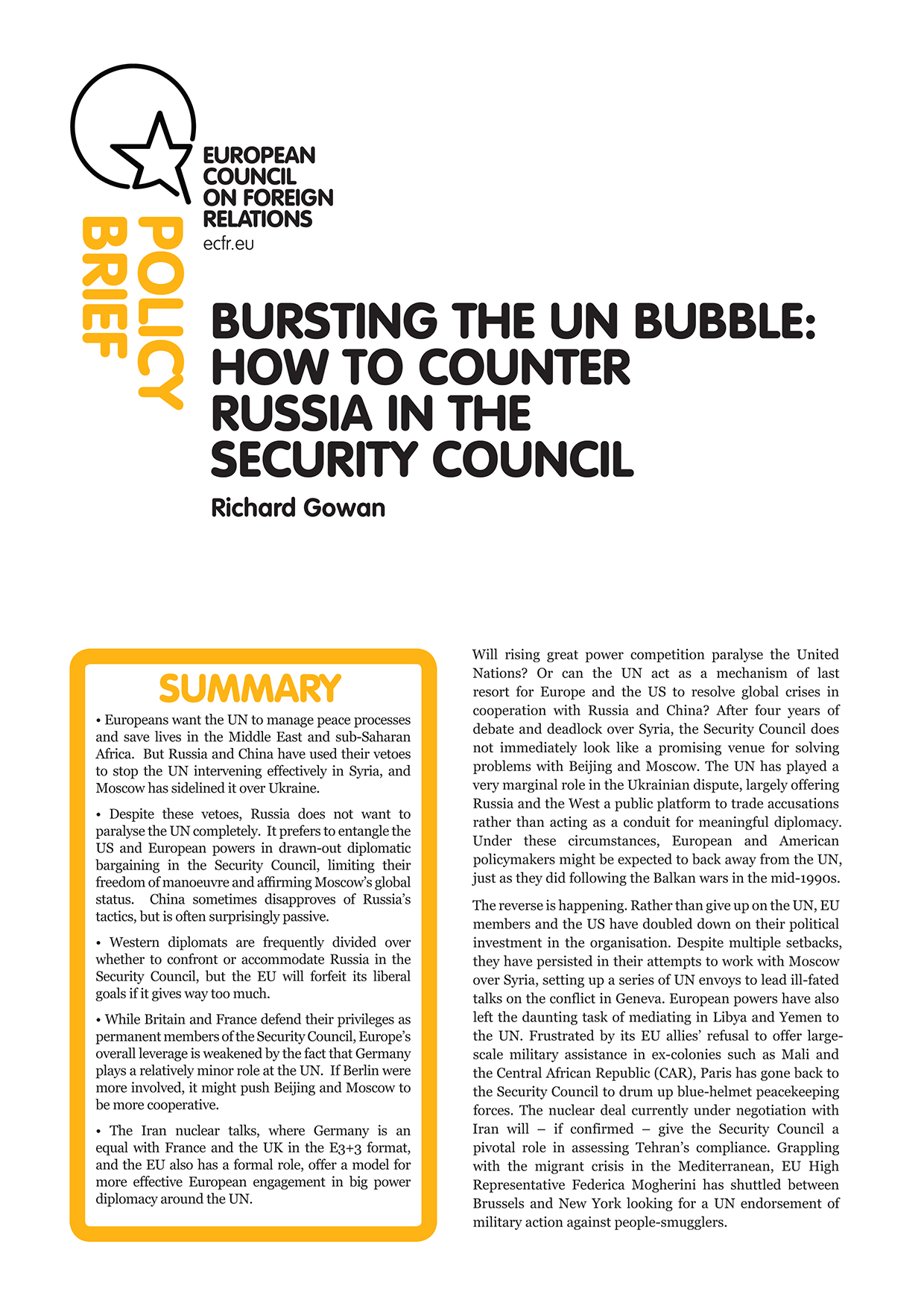
Bursting the UN bubble
Europe must learn the lessons of the Iran negotiations and boost Germany’s role at the UN Security Council to combat Russian blocking tactics

Associate Senior Policy Fellow
United Nations system; European security and defence policy; Africa; Western Balkans
English
Richard Gowan is an associate fellow at the European Council on Foreign Relations.
He is currently UN director at the International Crisis Group, and was previously research director at New York University’s Center on International Cooperation. He has taught at Columbia University’s School of International and Public Affairs and Stanford in New York, and wrote a weekly column on multilateralism (“Diplomatic Fallout”) for World Politics Review from 2013-2019. He has acted as a consultant to the UN on peacekeeping, political affairs, and migration.

Europe must learn the lessons of the Iran negotiations and boost Germany’s role at the UN Security Council to combat Russian blocking tactics
Europe faces a worsening security situation on many fronts and needs tools – new and old – to stabilize its neighbourhood
Richard Gowan, ECFR Associate Fellow and author of Chapter 6, believes that there were several crises the EU had to face in 2014. How…
Using international stabilization forces to restore order in Libya, Syria or Nigeria, let alone two or more at once, in 2015 will prove to be a daunting task

The EU’s habit of outsourcing its military interventions is problematic for a multitude of reasons
China’s increasing investments on the continent have made it increasingly sensitive to African security issues
It is worth asking if European governments could have been better prepared for the Iraqi horror show
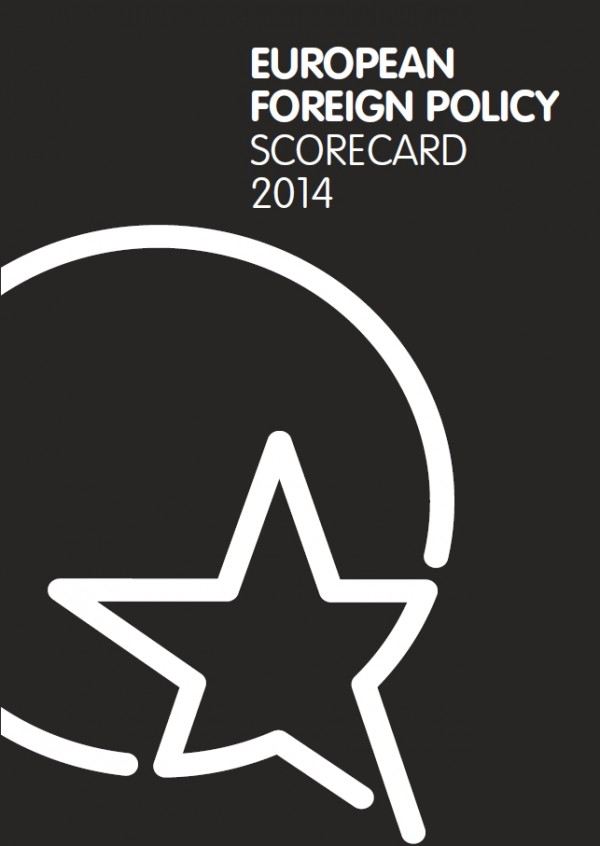
A comprehensive assessment of European foreign policy
Can Europeans safely ignore rising tensions in the Asia-Pacific? European policymakers may want to focus on their near neighbourhood and the transatlantic relationship but one way or the other they will have to deal with the fallout from rising tensions in Asia
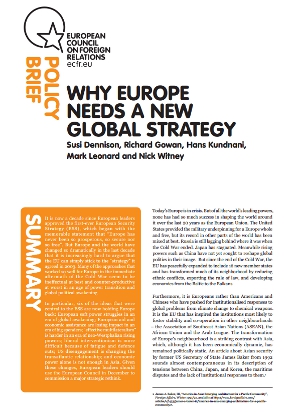
Towards a new EU foreign policy
Europe should not confuse development aid’s role in reducing forced migration with that of reducing migration more broadly
Despite the existing crises to the multilateral system, the EU possesses a set of specific strengths needed to actually save the system
The turmoil in the current system represents an opportunity for Europeans to shape a new order that meets their strategic needs
Brexit has the potential to upset European coordination on development and human rights across the UN system
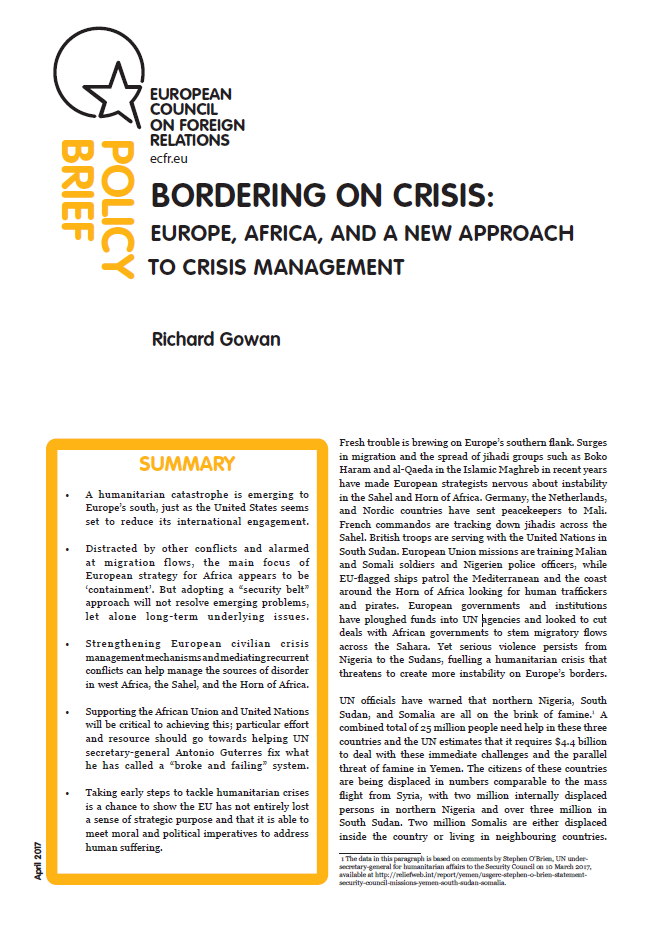
Taking early steps to tackle humanitarian crises is a chance to show the EU has not entirely lost a sense of strategic purpose and that it is able to meet moral
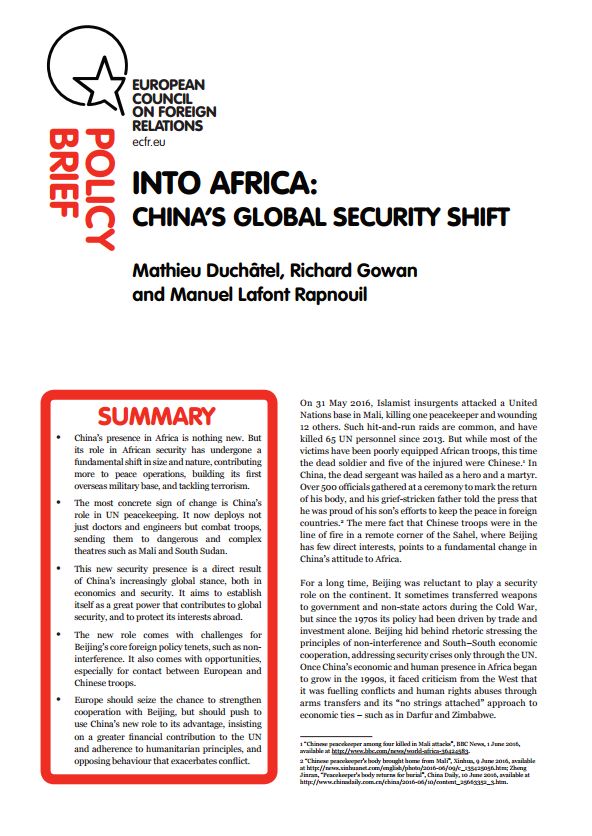
China is taking on a new military role in Africa, seeking to boost its image as a great power that promotes peace and security worldwide
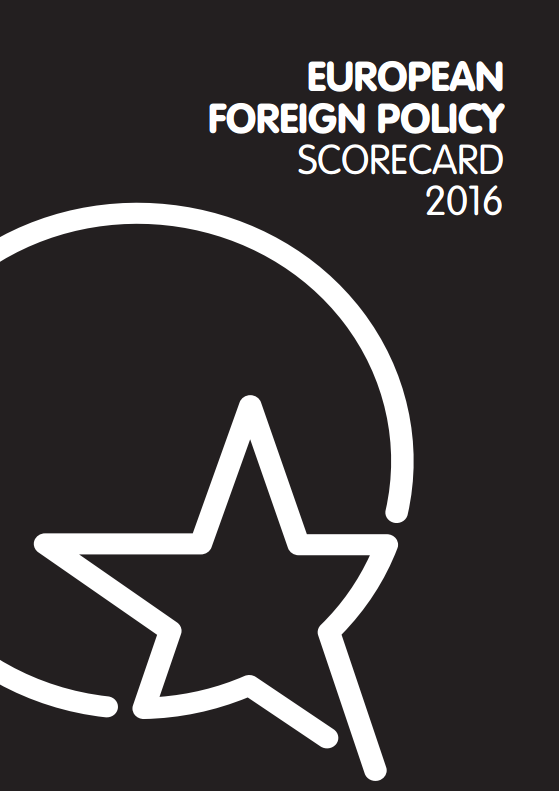
The sixth ECFR Foreign Policy Scorecard highlights the EU’s diminishing ability to influence its neighbours, and the neighbourhood’s growing impact on the EU
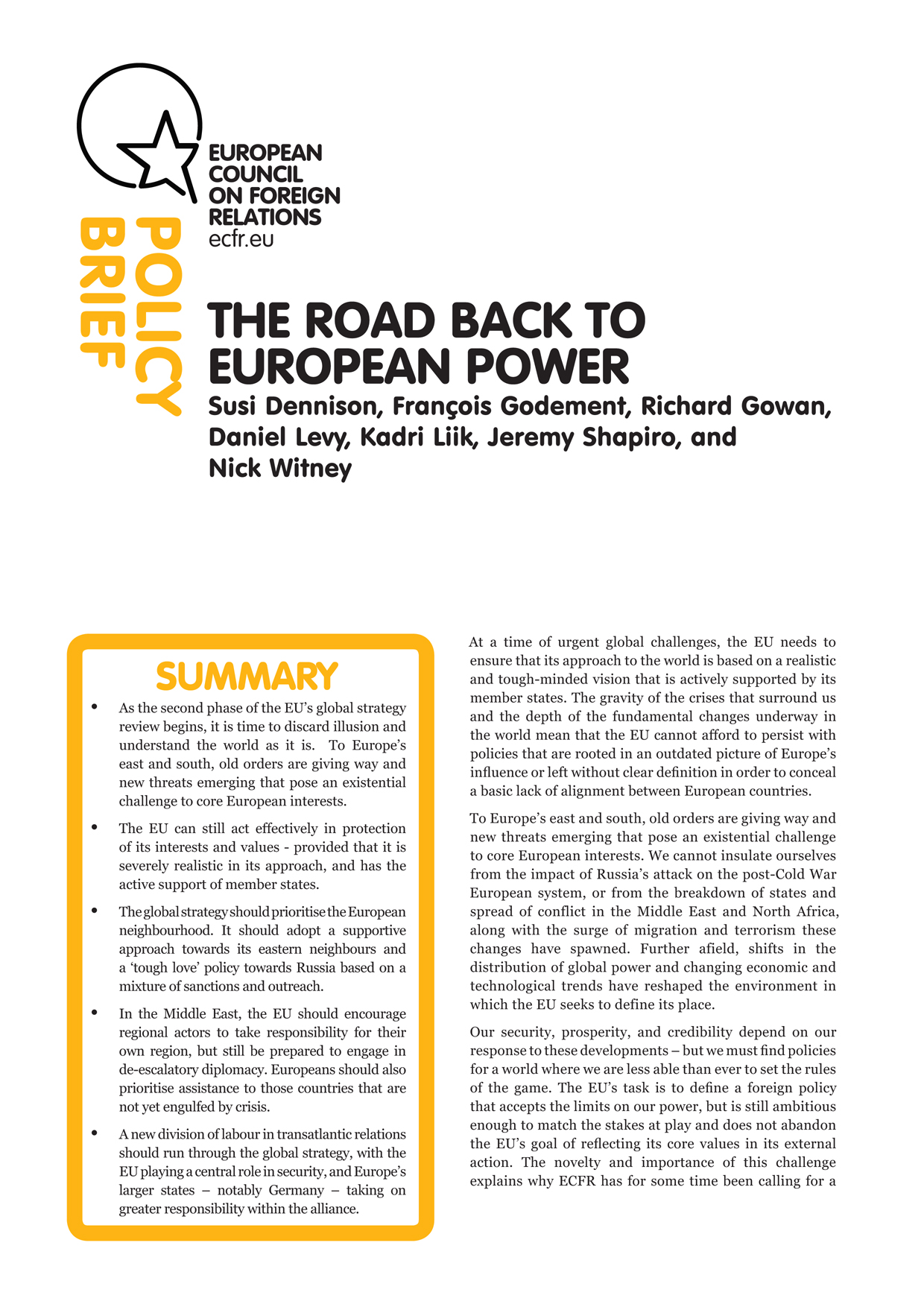
The EU needs an honest assessment of its capabilities and to set limited goals behind which member states can show sustainable unity

Europe must learn the lessons of the Iran negotiations and boost Germany’s role at the UN Security Council to combat Russian blocking tactics

The EU’s habit of outsourcing its military interventions is problematic for a multitude of reasons
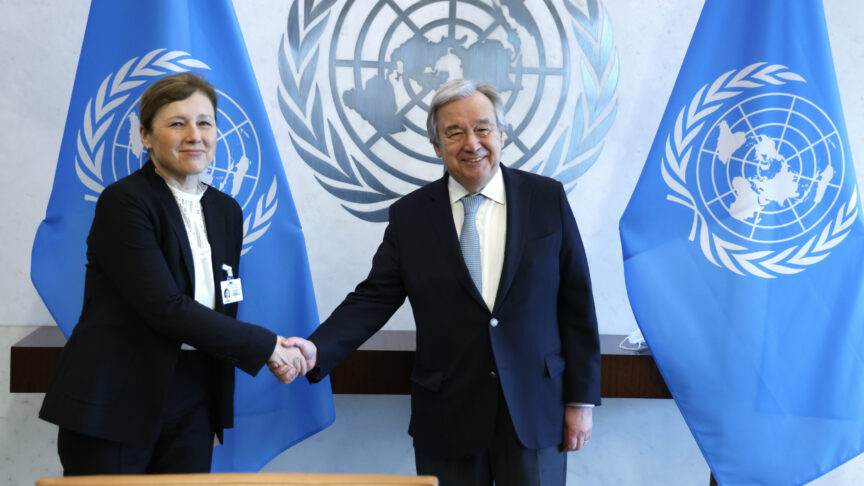
The West no longer has a monopoly on values at the UN. But Europeans can shape a new narrative in the changing multilateral system by emphasising their commitment to sovereignty, development, and openness
Although their new friendship treaty does not call for an EU Security Council seat, France and Germany must pitch a compelling vision of multilateralism at the UN
Brutal transactional talks is the only language the new National Security Advisor understands
Running the United Nations is a lonely job for António Guterres – and he seems to prefer it that way.
Before January, Europeans should make preparations to safeguard the UN, again
There are still, for now, some very serious European contenders with real chances of success.
Even if the UK is a diminished power after Brexit international partners will still need its cooperation in the UN and NATO
This week’s World Humanitarian Summit was an opportunity to discuss how to assist the suffering, yet the entire process showed much of the humanitarian sector at its most fragmented and self-indulgent
The European response to the Syrian refugee crisis to date has been characterised by short-term and reactive measures. But this is going to be…
While Syrians currently account for almost 20 percent of the 60 million refugees and IDPs worldwide, they are by no means the only ones…
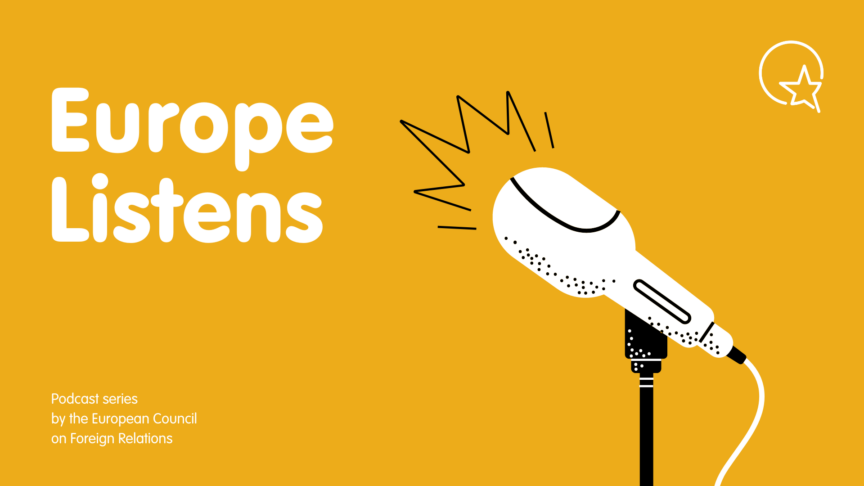
In September 2024, the United Nation’s Summit of the Future is set to take place – a crucial moment to mend “eroded trust” between peoples,…
The multilateral system faces three related crises of power, relevance, and legitimacy. This fraying consensus threatens the EU, which is committed to multilateralism. But the…
Mark Leonard and Richard Gowan go through the likely talking points at the meeting and discuss what might be on some countries' hidden agendas. The…
ECFR’s director Mark Leonard talks with ECFR’s U.N. expert Richard Gowan among other things about Trump and Macron's addresses at the UNGA, the Korean nuclear crisis,…
This workshop, organised with the Embassy of the Netherlands in London, discusses crisis management in Africa in the age of Trump and Brexit. With:…
ECFR’s director Mark Leonard speaks with Senior Policy Fellow Richard Gowan about the candidates, and the factors that will decide the race. The podcast was recorded…
ECFR’s director Mark Leonard speaks with Somini Sengupta, UN correspondent for the New York Times, Richard Gowan, ECFR Senior Policy Fellow, and Manuel Lafont Rapnouil,…
Richard Gowan, Senior Policy Fellow at ECFR and Professor at Columbia University, explains why the EU received a B- for how it dealt with…
Richard Gowan, ECFR Associate Fellow and author of Chapter 6, believes that there were several crises the EU had to face in 2014. How…